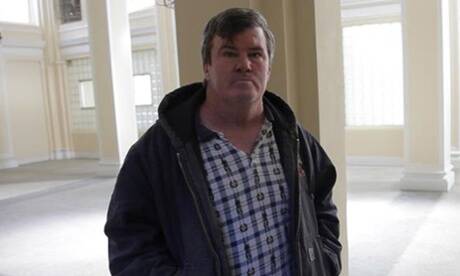Probation for Profit
Two people receive a $400 citation for driving without a valid license. One mails a check to the court and moves on. The other, unemployed and unable to pay the fine in full, is placed on “pay-only probation.” The person is required to make smaller payments plus additional “supervision fees” over months or even years—under the constant threat of jail time for a missed payment—until the ever-growing debt is paid down. The poorer an offender is, the longer it takes to scrape together payments and the more fees accumulate. Private probation companies, working with over 1,000 courts across the United States, exploit this fundamental injustice in order to make a profit.
A report released by Human Rights Watch on Feb. 5 details abusive practices in Georgia, Mississippi and Alabama, where this offender-funded model of criminal justice prevails. Probation companies offer cash-strapped counties a deal that seems too good to be true: at no cost to the taxpayer, they will collect debts owed to the court by low-level offenders, who are required to pay supervision fees to the company as a condition of their probation. In 1983 the U.S. Supreme Court ruled it unconstitutional to revoke probation because a person is unable to pay a fine. While it is the responsibility of a judge to determine a probationer’s ability to pay, in practice this decision is often delegated to the service providers, who have a financial stake in the outcome. According to Human Rights Watch, private officers routinely threaten and use incarceration to extract payments from indigent offenders and their families.
The report concludes that predatory practices are not the result of privatization of probation per se but are “inevitable without strong government oversight.” Unless courts can dedicate the public resources necessary for such oversight, private probation companies have no business dispensing justice.
Euthanasia for Children?
The Belgian Parliament has approved legislation to allow euthanasia for terminally ill children who are near death and in “constant and unbearable physical” pain. To be a candidate for euthanasia, a child must have a “capacity of discernment” and parental approval and must be interviewed by a pediatric psychiatrist or psychologist, who would then make a formal certification in writing. A 16-person commission established by the euthanasia law passed in 2002, half of whom are physicians, is to ensure that the regulations are followed. King Philippe is expected to sign the measure into law.
The legislation has faced resistance. The proposal is rightly opposed by some Belgian pediatricians as well as Archbishop André-Joseph Leonard of Brussels. On Feb. 6, the archbishop helped lead a day of prayer and fasting in protest against the legislation. He said in a statement that the protest was intended to “wake up people’s consciences.”
The U.S. Supreme Court, in Roper v. Simmons (2005), ruled it unconstitutional to apply the death penalty to anyone under 18. The decision rightly pointed to the European consensus that it was barbaric to execute children. With the passage of the Belgian law, the tables will have been turned. If children are not to be held fully accountable for a capital crime, which might lead to their execution, should they be considered capable of making a decision about when to end their own lives?
Beyond Celebrity
Italy has a new prime minister, a charismatic politician who has been compared variously to Britain’s Tony Blair and to John F. Kennedy. Until recently, the 39-year-old Matteo Renzi was the mayor of Florence. On Feb. 17 he was appointed by President Giorgio Napolitano to form a coalition government following the “irrevocable” resignation of Enrico Letta, who tried to hold his government together for nearly 10 months. Mr. Renzi ousted Mr. Letta as head of the Democratic Party.
Mr. Renzi’s political rise has been extraordinary. At 29, he was Italy’s youngest provincial president. Then he became mayor of Florence, head of his party and prime minister. He is known as Il Rottamatore—“The Scrapper”—but his tenacity has brought him less flattering comparisons with another prime minister, Silvio Berlusconi.
The new prime minister is center-left politically and has vowed to get the country out “from the quagmire”—as he puts it—and set Italy on the path to recovery from its economic trials. With a youth unemployment rate of 40 percent, that will be an audacious undertaking. Mr. Renzi has also been compared to the Fonz, of “Happy Days” fame, with his fondness for leather jackets and white T-shirts, but he will need more than celebrity to tackle this job. If he lacks the political acumen to make real change in Italy, he could end up like other promising politicians whose luster dims after a while. A former winner of the Italian version of “Wheel of Fortune,” he will need the wheel to turn his way to help accomplish his goals as prime minister.








